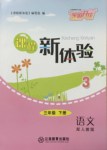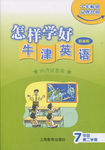题目内容
【题目】Sam, an unemployed man, said it was only the second thing he had ever won in his life. The first thing was a blanket at a church raffle(抽奖) when he was 25 years old. But this was much bigger: it was $120,000! He had won the Big Cube(骰子), a state lottery(彩票) game. To win, a contestant must first guess which number a spinning cube will stop on. The cube has six numbers on it: 1X, 10X, 50X, 100X, 500X, and 1000X. If he is correct, the contestant must then guess which of two selected variables(变量) is going to be greater. So, just guessing which number appears on the cube does not guarantee that you will win any money. Sam correctly guessed 1000X, but he still had to choose between two variables. One variable was the number of cars that would run the stop sign at Hill Street and Lake Avenue in six hours. The other variable was the number of times that a teenage boy would change TV channels in a three-hour period. This was a tough decision.
Finally, Sam flipped(翻转) a coin. It came up heads, so Sam picked the teenager. He picked right. The stop sign was run only 76 times, but the teen clicked 120 times. Sixty-year-old Sam jumped for joy, for he had just won 1000 times 120, or $120,000. Sam dreamily left the lottery studio. Talking excitedly on his cell phone while crossing the street, he got hit by a little sports car.
Sam is slowly getting better. He was in the hospital for a month. His hospital bill was $110,000. And the insurance company for the little sports car's owner sued(起诉) Sam for $9,000 worth of repairs. Also, Sam still has to pay taxes on his winnings. Sam doesn't play the state lottery any more. He says it's better to be unlucky.
【1】Sam won the blanket ________ years ago.
A. 25 B. 60 C. 35 D. 76
【2】Sam won the lottery because ______.
A. he was lucky B. he was good at math
C. he was smart D. he was tough
【3】Which of the following is TRUE according to the passage?
A. The lottery game was a complete lie.
B. Sam was quite familiar with the boy.
C. The owner of the car is now in hospital.
D. Sam will have none of the prize money left.
【4】Sam’s experience shows that ______
A. everything has its time and that time must be watched.
B. he who risks nothing, gains nothing.
C. everything comes to him who waits.
D. he who laughs on Friday will weep on Sunday.
【答案】
【1】C
【2】A
【3】D
【4】D
【解析】
试题分析:文章讲述了一个叫Sam的人的故事。六十岁的Sam共获得过两次奖,第一次只是一条毛毯,第二次凭借运气,Sam获得了12万大奖。然而,Sam兴奋过度,过十字路口时被车撞了。他不仅要负担医疗费,还得支付撞车的赔偿和获奖的所得税。真是乐极生悲啊!
【1】C推理判断题。根据倒数第二段“Sixty-year-old Sam”可知,第二次获奖时,Sam60岁;第一次获奖是在25岁的时候,这期间过了35年,因此,获得毛毯是35年前的事,故选C。
【2】A细节理解题。根据最后一段“He says it's better to be unlucky.”可知,Sam宁愿自己的运气不要那么好,说明他赢得彩票大奖是靠运气,故选A。
【3】D细节理解题。根据最后一段“His hospital bill was $110,000...sued(起诉) Sam for $9,000 worth of repairs”可知,Sam赢得的12万全部花在了医药费和赔偿上,除此之外,他还要支付所得税,由此可知,Sam赢得的钱到了最后入不敷出,故选D。
【4】D俚语谚语题。A万物皆有时,时来不可失;B收获与风险并存;C功夫不负有心人;D乐极必生悲。根据倒数第二段“Sam dreamily left the lottery studio. Talking excitedly on his cell phone while crossing the street, he got hit by a little sports car.”可知,Sam一时间太激动了,以至于在过十字路口时被车撞了,说明了“乐极生悲”的道理,故选D。

 芝麻开花课程新体验系列答案
芝麻开花课程新体验系列答案 怎样学好牛津英语系列答案
怎样学好牛津英语系列答案